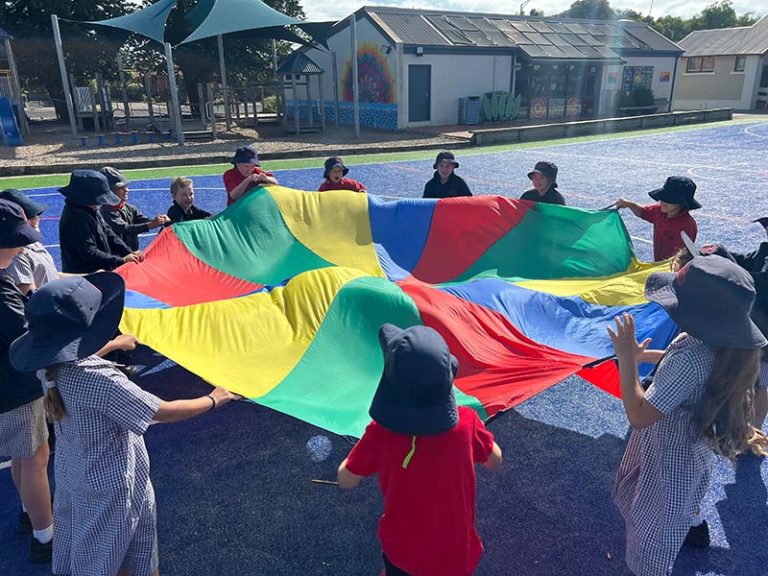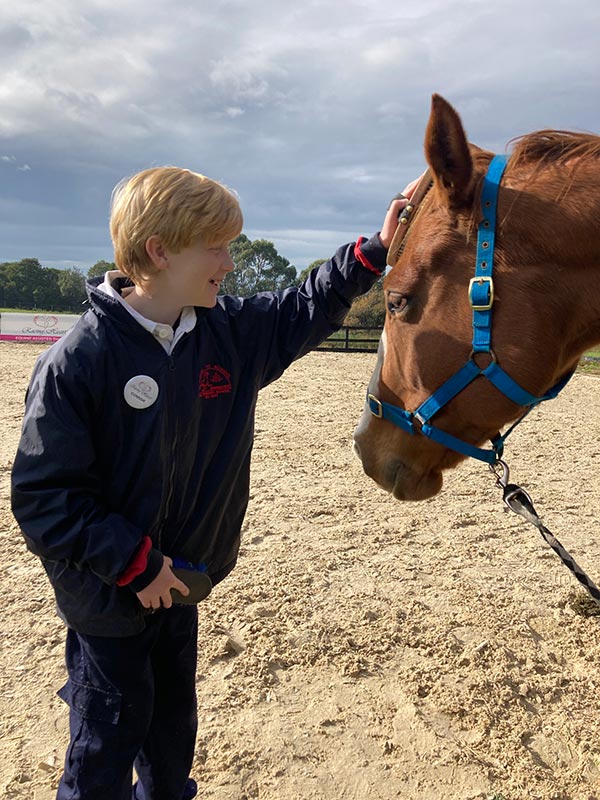Rye Primary School
Wellbeing
Rye Primary School is committed to ensuring the health, safety and wellbeing of every member of our school community, as we STRIVE to continually improve wellbeing at a school and community level.
Rye Primary School aims to empower students to reach their personal potential and equip them with the skills they will need for lifelong learning. We STRIVE to continually improve the wellbeing of our students, staff and community.
Positive education brings together best-practice teaching with the science of Positive Psychology, to help all students reach their academic and personal potential. Working collaboratively our teachers, support staff, students and parents have developed our STRIVE positive wellbeing program.
Our STRIVE support programs include Resilience, Rights and Respectful Relationships program, Restorative Practices and The Zones of Regulation.

Rye Primary School
Resilience, Rights and Respectful Relationships
The Resilience, Rights and Respectful Relationships (RRRR) learning materials have been designed for teachers in primary and secondary schools to develop students’ social, emotional and positive relationship skills. Efforts to promote social and emotional skills and positive gender norms in children and young people has been shown to improve health-related outcomes and subjective well-being. It also reduces antisocial behaviours including engagement in gender-related violence.
The topics are listed below and these are the same at each year level. The RRRR program is assessed in the Victorian Curriculum areas of Personal and Social Capability and Health and Physical Education.
The topics covered are:
- Emotional Literacy
- Personal Strengths
- Positive Coping
- Problem Solving
- Stress Management
- Help-Seeking
- Gender and Identity
- Positive Gender Relations


Rye Primary School
Restorative Practices
At Rye Primary School, when relationships have been damaged through poor behaviour choices we employ restorative practice as a strategy to seek to repair relationships. Restoration brings about a sense of remorse and a restorative action on the part of the offender and forgiveness by the victim.
- Practitioners focus on the unacceptable behaviour of offenders rather than their moral character
- This can lead to healthier interpersonal relations among members of the school community and more effective learning.
Good relationships are the basis for all learning. Anything that affects relationships (such as inappropriate behaviour) impacts on learning for the student and that of other students. Restorative Practice is a way of viewing relationship-building and behaviour management in schools. It strengthens community among students and between students, teachers and parents.
Restorative Practices allows for:
- Enhanced relationships among students and teachers
- Being able to recognise and correct your own behaviour
- Being responsible for consequences of your behaviour
The restorative approach to discipline separates the action of wrong doing from the student carrying out the action. This allows quality relationships between staff and students to be maintained as we work with the student and involve them directly in the process to take responsibility for their actions. It allows the student to work with the members of the community who have been affected by their behaviour. The initial stages of restorative interventions are usually informal and are based on communication. This should involve the class teacher and/or students involved. If the wrong doing is repeated, sustained or is of a more serious nature, then the intervention will usually involve the PLT leader, Assistant Principal and/or Principal – and become more formal in nature.
For restorative practices to be effective in changing behaviour, the following questions are asked:
- What happened?
- What were you thinking of at the time?
- What have you thought about since?
- Who has been affected by what you have done? In what way?
- What do you think you need to do to make things right?
Overarching Principle of Restorative Practices:
That people are more engaged and satisfied, are more cooperative and productive, and more likely to make positive changes in their behaviour, when those in positions of authority do things with them rather than to them or for them.

Rye Primary School
The Zones of Regulation
The Zones of Regulation is a concept teachers at Rye PS use to foster self-regulation and emotional control. Self-regulation is something everyone continually works on. We all encounter trying circumstances that test our limits from time to time. If we are able to recognise when we are becoming less regulated, we are able to do something about it to manage our feelings and get ourselves to a healthy place. This comes naturally for some, but for others it is a skill that needs to be taught and practiced. This is the goal of using ‘The Zones of Regulation’.
There are four zones that we will use to describe how your body and brain feel:
Blue Zone | When you’re in the Blue Zone, your body is running slow/you have no energy, such as when you’re tired, sick, sad, or bored. |
Green Zone | The Green Zone, like a green light, is when you are ‘good to go’ and ready to learn. If you are in the Green Zone, you may feel happy, calm, and focused. |
Yellow Zone | When entering the Yellow Zone, proceed with caution and slow down! The Yellow Zone describes when you start to lose control such as when you are frustrated, overwhelmed, silly, wiggly, excited, worried, anxious, or surprised. It is a good idea to use caution when you are in the Yellow Zone. |
Red Zone | The Red Zone is reserved for extreme emotions such as terror, uncontrolled anger, aggression, and elation. When you are in the Red Zone, you are out of control, have trouble making good decisions, and must STOP and use tools to get back to the Green Zone. |
We must ensure that students can match an emotion to each of the zones. E.g., sad, calm, anxious, angry. Emphasis is placed on the fact that we all experience all of the zones at one time or another.


Rye Primary School
Wellbeing Programs
At Rye Primary School we have a range of dynamic programs some of which include:
LUNCH TIME PROGRAMS
As part of our extra curricula activities at Rye Primary School, we offer Lunchtime Activity Programs. The Lunchtime Activity Programs are designed to provide children with a variety of activities to participate in during the school’s lunch break. Various activities are planned with each activity being co-ordinated by a teacher. Some of the activities include: playing board/card games, drawing/art, yoga, environmental/science activities, choir, library time, lego builders, sports – including basketball, football, dance, soccer, and netball. These activities are open to students in various year levels each week, so that all students have an opportunity to participate.
PLAY LEADERS
Year 5 and 6 students have completed training to become PLAY leaders. PLAY leaders facilitate games and activities for other students in the yard at lunch time.
YEAR 5 BUDDIES
Our Year 5 students love supporting the Foundation students throughout the year. Buddies help with the transition to primary school, spend time in the classroom together and help each other out around the playground when needed. Our senior students begin to look after their little buddies before school even begins. They meet and exchange letters and pictures prior to commencing school, and are present from day one for support and reassurance.
DRUMBEAT
DRUMBEAT encourages all participants to have a voice and contribute to conversations. It allows students to discover more about themselves, their community, relationships, their identity and emotional intelligence. It is a fun way to work together to achieve team goals. DRUMBEAT was made possible through School-Focused Youth Services who generously donated 11 large djembes and funded two of our staff to attend the formal DRUMBEAT facilitator training with Holy Oake.
BIKE MECHANICS
Selected students in years 5 and 6 have the opportunity to participate in the hands on learning of bike mechanics. With the support of brilliant volunteers from The Mens Shed – students take apart bikes and rebuild them. Students learn skills through real life learning and study bicycle repair and learn the best methods of bicycle repair mechanics.
EQUINE THERAPY
Equine therapy incorporates horses to support our targeted student’s self-esteem, emotional growth and self-awareness. Selected students engage in horse-related activities, including grooming, feeding, and riding a horse.

